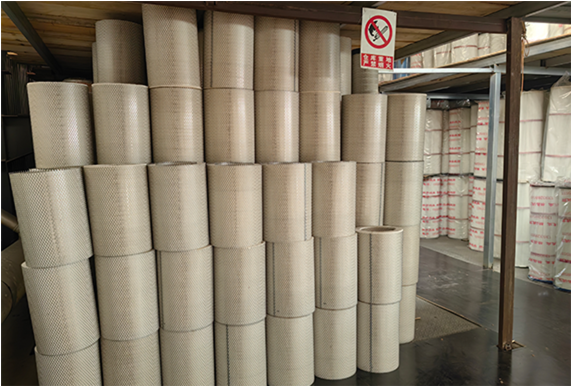 Tel:
+8615930870079
Tel:
+8615930870079
10月 . 19, 2024 02:20 Back to list
Effective Antistatic Solutions for High-Performance Filter Elements in Industrial Applications
Understanding Antistatic Filter Elements Importance and Applications
Antistatic filter elements have become an essential component in various industries where the control of static electricity is crucial. These specialized filters are designed to mitigate the risks associated with static charges, which can lead to equipment malfunction, product damage, or even safety hazards. This article explores the significance of antistatic filter elements, their functionality, and their diverse applications.
The Need for Antistatic Protection
Static electricity is often generated through the movement of dust particles, liquids, and gases. In environments where sensitive electronic equipment or flammable substances are present, even a small static discharge can have serious consequences. Antistatic filter elements serve as a preventative measure, helping to dissipate static charges and minimize the risk of explosion or equipment failure.
The importance of these filters cannot be overstated in industries such as pharmaceuticals, chemicals, electronics, and food processing, where contaminants can lead to severe product defects or safety hazards. In such scenarios, maintaining a dust-free environment is paramount, and antistatic filter elements play a crucial role in achieving this.
How Antistatic Filter Elements Work
Antistatic filter elements are typically made from materials that possess inherent conductive properties or are treated with antistatic agents. These materials enable the safe dissipation of static electricity while simultaneously capturing airborne particles and contaminants. By incorporating conductive fibers into filter media, these elements ensure that any static buildup is continually grounded.
The mechanisms of action include both mechanical filtration and electrostatic capture. Mechanical filtration traps particles through a physical barrier, while electrostatic capture utilizes the electrical charges on the particles themselves. This dual action not only enhances the filter’s efficiency but also contributes to the overall safety of the working environment.
Key Benefits of Antistatic Filter Elements
1. Safety The primary benefit of antistatic filters is enhanced safety. By reducing the risk of static discharges, these filters help prevent fires and explosions in volatile environments.
antistatic filter element

3. Improved Air Quality These filters are effective in removing dust, pollen, and other harmful particles from the air, leading to a healthier work environment for employees.
4. Cost Efficiency Implementing antistatic filter elements can lead to significant cost savings by reducing equipment downtime, minimizing product loss, and lowering maintenance costs associated with cleaning and repairs.
5. Regulatory Compliance Many industries are subject to strict regulations regarding air quality and safety standards. Using antistatic filter elements helps companies meet these regulatory requirements, avoiding potential fines and enhancing their reputation.
Applications Across Industries
Antistatic filter elements find applications in a variety of settings
- Electronics Manufacturing In cleanrooms, these filters help maintain a dust-free environment, preventing damage to sensitive components. - Pharmaceuticals In drug manufacturing, ensuring the absence of contaminants is crucial, and antistatic filters support this need.
- Chemical Processing In chemical plants, these filters reduce the risk of fire and explosion by mitigating static discharge while filtering harmful vapors.
- Food Processing Maintaining a contaminant-free environment is vital in food production, where antistatic filters play a significant role.
In conclusion, antistatic filter elements are indispensable in modern industrial applications. Their ability to prevent static-related hazards, assure product quality, and enhance overall air safety makes them a critical investment for any organization operating in static-sensitive environments. As industries continue to evolve, the demand for advanced filtration solutions like antistatic filters is likely to grow, ensuring safer and cleaner working conditions for all.
-
Types and Applications of Air Filtration CartridgesNewsJul.28,2025
-
The Role of Gas Turbine FiltersNewsJul.28,2025
-
Mastering Air Filter Cartridge UseNewsJul.28,2025
-
Advanced Turbine Filters for Modern Gas TurbinesNewsJul.28,2025
-
Cellulose Air Filter Cartridge Advantages in Dust FiltrationNewsJul.28,2025
-
Cellulose Filters for Air Particle ReductionNewsJul.28,2025

 Email:
Email:





